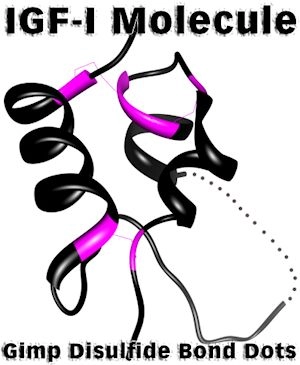Introduction to Testosterone Replacement Therapy (TRT)
Testosterone Replacement Therapy (TRT) is a medical intervention increasingly utilized among American men to address symptoms associated with low testosterone levels, such as decreased libido, fatigue, and mood disturbances. While TRT can significantly improve quality of life, it is crucial to consider its impact on various organ systems, including the liver.
The Liver's Role in Hormone Metabolism
The liver plays a pivotal role in metabolizing hormones, including testosterone. It is responsible for converting testosterone into its less potent form, dihydrotestosterone (DHT), and metabolizing it for excretion. Given this critical function, any alteration in hormone levels, such as those induced by TRT, can potentially affect liver health.
Potential Effects of TRT on Liver Function
Research into the effects of TRT on liver health has yielded mixed results. Some studies suggest that TRT can lead to changes in liver enzyme levels, such as alanine aminotransferase (ALT) and aspartate aminotransferase (AST), which are markers of liver function. Elevated levels of these enzymes may indicate liver stress or damage. However, it is important to note that these changes are typically mild and reversible upon discontinuation of therapy.
Monitoring Liver Health During TRT
Given the potential for TRT to impact liver function, regular monitoring is essential for men undergoing this treatment. Healthcare providers typically recommend periodic blood tests to assess liver enzyme levels and overall liver health. Men should also be vigilant for symptoms of liver dysfunction, such as jaundice, abdominal pain, or unexplained fatigue, and report these to their healthcare provider promptly.
Risk Factors and Precautions
Certain factors may increase the risk of liver issues during TRT. These include pre-existing liver conditions, such as hepatitis or cirrhosis, and the use of oral forms of testosterone, which are metabolized by the liver and may pose a higher risk than other administration methods, such as injections or gels. Men with these risk factors should discuss the potential benefits and risks of TRT with their healthcare provider before initiating treatment.
Balancing Benefits and Risks
While the potential for liver effects is a consideration, it is important to weigh this against the benefits of TRT. For many men, TRT can significantly improve symptoms of low testosterone, enhancing overall well-being and quality of life. By working closely with healthcare providers and adhering to recommended monitoring protocols, men can safely navigate TRT and minimize potential risks to liver health.
Conclusion: A Holistic Approach to TRT
In conclusion, while TRT can have an impact on liver health, the effects are generally mild and manageable with proper monitoring and care. American men considering or currently undergoing TRT should engage in open dialogue with their healthcare providers to ensure a comprehensive understanding of the therapy's benefits and potential risks. By adopting a holistic approach to TRT, men can optimize their health outcomes while safeguarding their liver function.
Contact Us For A Fast And Professional Response

- TRT's Impact on Mental Health in American Men: Benefits, Risks, and Holistic Approaches [Last Updated On: March 12th, 2025] [Originally Added On: March 12th, 2025]
- Testosterone Replacement Therapy: Benefits and Risks for Young American Men with Hypogonadism [Last Updated On: March 18th, 2025] [Originally Added On: March 18th, 2025]
- Optimizing Testosterone Replacement Therapy with Diet and Exercise: A Holistic Approach for American Men [Last Updated On: March 18th, 2025] [Originally Added On: March 18th, 2025]
- TRT Boosts Bone Health in American Males: Benefits and Considerations [Last Updated On: March 18th, 2025] [Originally Added On: March 18th, 2025]
- American Men's Experiences with Testosterone Replacement Therapy: Impacts and Insights [Last Updated On: March 18th, 2025] [Originally Added On: March 18th, 2025]
- Navigating Insurance Coverage for Testosterone Replacement Therapy: A Comprehensive Guide [Last Updated On: March 19th, 2025] [Originally Added On: March 19th, 2025]
- Testosterone Replacement Therapy: Dosage, Methods, and Risks for American Males [Last Updated On: March 19th, 2025] [Originally Added On: March 19th, 2025]
- Testosterone Replacement Therapy: Enhancing Male Health and Vitality in American Men [Last Updated On: March 19th, 2025] [Originally Added On: March 19th, 2025]
- TRT: Benefits, Risks, and Prostate Health Monitoring in American Men [Last Updated On: March 19th, 2025] [Originally Added On: March 19th, 2025]
- Future of TRT: Innovations, Personalization, and Accessibility in American Medicine [Last Updated On: March 20th, 2025] [Originally Added On: March 20th, 2025]
- Economic Impact of Testosterone Replacement Therapy on U.S. Healthcare System [Last Updated On: March 20th, 2025] [Originally Added On: March 20th, 2025]
- TRT and Holistic Health: Enhancing American Men's Wellness with Alternative Therapies [Last Updated On: March 21st, 2025] [Originally Added On: March 21st, 2025]
- TRT in American Men: Masculinity, Stigma, and Healthcare Dynamics [Last Updated On: March 21st, 2025] [Originally Added On: March 21st, 2025]
- TRT Enhances Sleep Quality in American Males with Low Testosterone [Last Updated On: March 21st, 2025] [Originally Added On: March 21st, 2025]
- Testosterone Replacement Therapy: Enhancing Mood in American Males [Last Updated On: March 22nd, 2025] [Originally Added On: March 22nd, 2025]
- TRT: Enhancing Weight Management in American Males Through Holistic Approach [Last Updated On: March 22nd, 2025] [Originally Added On: March 22nd, 2025]
- Hypogonadism and TRT: Benefits, Risks, and Lifestyle Impact on American Males [Last Updated On: March 23rd, 2025] [Originally Added On: March 23rd, 2025]
- TRT's Impact on Immune Function in American Men: Benefits and Risks [Last Updated On: March 23rd, 2025] [Originally Added On: March 23rd, 2025]
- TRT's Role in Managing Diabetes: Insights for American Men [Last Updated On: March 23rd, 2025] [Originally Added On: March 23rd, 2025]
- TRT Benefits for American Males: Enhancing Skin Health and Elasticity [Last Updated On: March 23rd, 2025] [Originally Added On: March 23rd, 2025]
- Managing Side Effects of Testosterone Replacement Therapy in American Males [Last Updated On: March 24th, 2025] [Originally Added On: March 24th, 2025]
- Testosterone Replacement Therapy: Benefits, Risks, and Management for Aging Males [Last Updated On: March 24th, 2025] [Originally Added On: March 24th, 2025]
- Testosterone Replacement Therapy: Enhancing Muscle Mass in American Men [Last Updated On: March 24th, 2025] [Originally Added On: March 24th, 2025]
- TRT's Potential to Enhance Cognitive Function in American Men: An Overview [Last Updated On: March 24th, 2025] [Originally Added On: March 24th, 2025]
- TRT: Benefits for American Males and Its Impact on Vision Health [Last Updated On: March 24th, 2025] [Originally Added On: March 24th, 2025]
- Testosterone Replacement Therapy: Monitoring, Adjusting, and Lifestyle for American Males [Last Updated On: March 24th, 2025] [Originally Added On: March 24th, 2025]
- Testosterone Replacement Therapy: Combating Fatigue in American Men [Last Updated On: March 24th, 2025] [Originally Added On: March 24th, 2025]
- TRT: Enhancing Emotional Well-being in American Men with Low Testosterone [Last Updated On: March 24th, 2025] [Originally Added On: March 24th, 2025]
- TRT's Impact on Cardiovascular Health in American Men: Benefits and Risks [Last Updated On: March 24th, 2025] [Originally Added On: March 24th, 2025]
- TRT's Impact on Male Fertility: Risks, Strategies, and Lifestyle Considerations [Last Updated On: March 24th, 2025] [Originally Added On: March 24th, 2025]
- TRT and Hair Loss: Understanding Risks and Management Strategies for American Men [Last Updated On: March 25th, 2025] [Originally Added On: March 25th, 2025]
- TRT's Impact on Digestive Health in American Men: A Comprehensive Overview [Last Updated On: March 25th, 2025] [Originally Added On: March 25th, 2025]
- TRT Benefits for Joint Health in American Males: A Comprehensive Overview [Last Updated On: March 25th, 2025] [Originally Added On: March 25th, 2025]
- TRT Enhances Injury Recovery in American Males: Benefits and Considerations [Last Updated On: March 25th, 2025] [Originally Added On: March 25th, 2025]
- Testosterone Replacement Therapy: Benefits, Risks, and Management for American Men [Last Updated On: March 25th, 2025] [Originally Added On: March 25th, 2025]
- TRT Enhances Cognitive Function and Mental Clarity in American Men [Last Updated On: March 26th, 2025] [Originally Added On: March 26th, 2025]
- TRT: A Promising Approach to Managing Chronic Pain in American Males [Last Updated On: March 26th, 2025] [Originally Added On: March 26th, 2025]
- Testosterone Replacement Therapy: Benefits, Risks, and Latest Research for American Men [Last Updated On: March 26th, 2025] [Originally Added On: March 26th, 2025]
- Testosterone Replacement Therapy: Benefits, Risks, and Management for American Men [Last Updated On: March 26th, 2025] [Originally Added On: March 26th, 2025]
- Testosterone Replacement Therapy: Enhancing Stamina in American Males [Last Updated On: March 26th, 2025] [Originally Added On: March 26th, 2025]
- Testosterone Replacement Therapy: Costs, Benefits, and Accessibility for American Men [Last Updated On: March 27th, 2025] [Originally Added On: March 27th, 2025]
- Testosterone Replacement Therapy: A Promising Treatment for Depression in American Males [Last Updated On: March 27th, 2025] [Originally Added On: March 27th, 2025]
- TRT's Potential Benefits for Respiratory Health in American Men: A Comprehensive Overview [Last Updated On: March 27th, 2025] [Originally Added On: March 27th, 2025]
- TRT: A Solution for Low Libido in American Males - Benefits, Safety, and Future [Last Updated On: March 27th, 2025] [Originally Added On: March 27th, 2025]
- TRT and Blood Pressure: Monitoring and Management Strategies for American Men [Last Updated On: March 28th, 2025] [Originally Added On: March 28th, 2025]
- Maximizing TRT Benefits: Diet, Exercise, Sleep, and Stress Management for American Males [Last Updated On: March 29th, 2025] [Originally Added On: March 29th, 2025]
- TRT: Managing Stress and Enhancing Well-being in American Males [Last Updated On: March 29th, 2025] [Originally Added On: March 29th, 2025]
- TRT's Impact on Kidney Function: Benefits and Risks for American Males [Last Updated On: March 29th, 2025] [Originally Added On: March 29th, 2025]
- Testosterone Replacement Therapy: Enhancing Confidence and Well-being in American Males [Last Updated On: March 30th, 2025] [Originally Added On: March 30th, 2025]
- Choosing the Right TRT Clinic: Key Factors for American Males [Last Updated On: March 30th, 2025] [Originally Added On: March 30th, 2025]
- Testosterone Replacement Therapy: Side Effects and Risks for American Men [Last Updated On: March 31st, 2025] [Originally Added On: March 31st, 2025]
- TRT's Complex Effects on Blood Sugar in American Men: A Comprehensive Analysis [Last Updated On: April 1st, 2025] [Originally Added On: April 1st, 2025]
- TRT's Impact on Cholesterol: Insights for American Males on Therapy [Last Updated On: April 1st, 2025] [Originally Added On: April 1st, 2025]
- TRT's Impact on Thyroid Function: Essential Insights for American Men [Last Updated On: April 4th, 2025] [Originally Added On: April 4th, 2025]
- Testosterone Replacement Therapy: Enhancing Health and Vitality in American Males [Last Updated On: April 5th, 2025] [Originally Added On: April 5th, 2025]
- Exploring TRT: Benefits, Risks, and Ethics for American Male Athletes [Last Updated On: April 8th, 2025] [Originally Added On: April 8th, 2025]
- Maximizing Health: Integrating TRT with Lifestyle and Pharmacological Therapies for American Males [Last Updated On: April 8th, 2025] [Originally Added On: April 8th, 2025]
- Understanding Allergic Reactions in Testosterone Replacement Therapy: Risks and Management [Last Updated On: April 9th, 2025] [Originally Added On: April 9th, 2025]
- TRT's Impact on Dental Health: Insights for American Men [Last Updated On: April 9th, 2025] [Originally Added On: April 9th, 2025]
- TRT and Hearing Health: Considerations for American Males [Last Updated On: April 9th, 2025] [Originally Added On: April 9th, 2025]
- TRT: Boosting Social Confidence and Relationships in American Males [Last Updated On: April 9th, 2025] [Originally Added On: April 9th, 2025]
- Understanding Testosterone Replacement Therapy: Interpreting Lab Results for American Men [Last Updated On: April 10th, 2025] [Originally Added On: April 10th, 2025]
- Traveling with Testosterone Replacement Therapy: A Comprehensive Guide for American Men [Last Updated On: April 10th, 2025] [Originally Added On: April 10th, 2025]
- TRT Benefits for American Men: Enhancing Nail Health and Overall Vitality [Last Updated On: April 10th, 2025] [Originally Added On: April 10th, 2025]
- TRT Benefits for Eye Health in American Men: Dry Eye, AMD, and More [Last Updated On: April 11th, 2025] [Originally Added On: April 11th, 2025]
- Legal Framework and Considerations for Testosterone Replacement Therapy in the U.S. [Last Updated On: April 12th, 2025] [Originally Added On: April 12th, 2025]
- TRT's Impact on American Men's Reproductive Health: Fertility and Sperm Production Effects [Last Updated On: April 12th, 2025] [Originally Added On: April 12th, 2025]
- Testosterone Replacement Therapy: Social Implications for American Males [Last Updated On: April 16th, 2025] [Originally Added On: April 16th, 2025]
- TRT's Impact on Chest Health: Benefits, Risks, and Management in American Men [Last Updated On: April 16th, 2025] [Originally Added On: April 16th, 2025]
- Testosterone Replacement Therapy: Psychological Impacts and Support for American Men [Last Updated On: April 16th, 2025] [Originally Added On: April 16th, 2025]
- TRT's Impact on Neck Health: Benefits and Risks for American Men [Last Updated On: April 17th, 2025] [Originally Added On: April 17th, 2025]
- TRT's Impact on Cognitive Function and Artistic Expression in American Males [Last Updated On: April 17th, 2025] [Originally Added On: April 17th, 2025]
- TRT Enhances Foot Health in American Males: Muscle, Bone, and Nerve Benefits [Last Updated On: April 17th, 2025] [Originally Added On: April 17th, 2025]
- TRT's Impact on Hand Health: Benefits, Risks, and Management for American Men [Last Updated On: April 18th, 2025] [Originally Added On: April 18th, 2025]
- Ethical Challenges in Testosterone Replacement Therapy: Consent, Access, and Misuse [Last Updated On: April 18th, 2025] [Originally Added On: April 18th, 2025]
- TRT: Boosting Work Performance in American Males with Low Testosterone [Last Updated On: April 18th, 2025] [Originally Added On: April 18th, 2025]
- TRT: Enhancing Back Health in American Males Through Testosterone Therapy [Last Updated On: April 20th, 2025] [Originally Added On: April 20th, 2025]

















